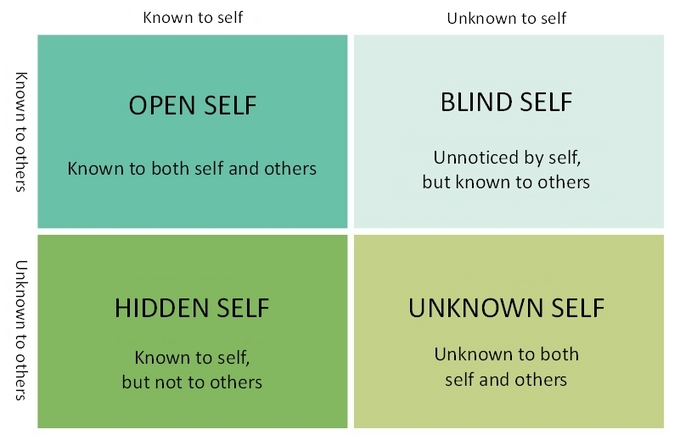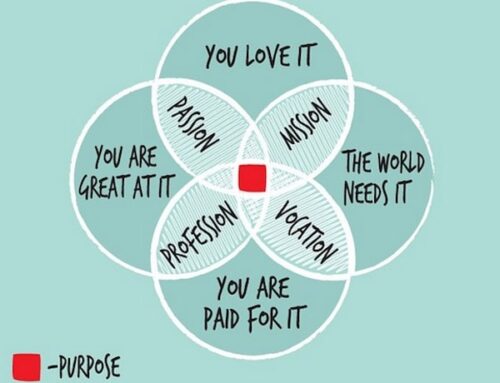Self-Awareness gives us the chance to act in ways that maximise our own performance and get the best out of those we lead by removing the ‘interference’ that would otherwise get in the way.
We already have a level of self-awareness and in some of us it could be quite well developed while in others it will be less so. There will also be things that other people know about us that we may or may not know and the Johari Window is a useful way to understand what this means. For more on the Johari Window click here.
The Johari Window:
How then can we begin to become more self-aware and what do we need to be aware of?
What we are really interested in is not the basic ‘facts’ about us – when we were born, the colour of our eyes, how tall we are or where we live etc. There are three important aspects of who we are for the purposes of our performance and interaction with others. These are: our thoughts, our feelings and our behaviours.
There are two simple but often difficult steps to developing our awareness of those three aspects of who we are.
Self-Reflection
The first step is to take some time out from our daily routine to identify our strengths and weaknesses, our likes and dislikes, our values and beliefs, our routines and habits. This is an ongoing process and it is often a good idea to set aside a regular time to keep a journal and complete some structured thinking as well as more informal reflection.
Journaling is a great way to record your thoughts and feelings and to be able to look back at what you have previously written and reflect on it. A series of questions about how you think and feel can be a useful prompt for this reflection eg How did you feel on the way home from work? What were you thinking about as you left home?
It is often difficult to become more aware of our emotions and how we feel about something until we have created a habitual way to do it. One way that some people do it is to fix certain time points during the day and at those points, to make a note (in writing or mentally) of what they are thinking about and how they are feeling. This could be once or twice a day or could be as many as you want using an alarm on your phone.
A Personal SWOT analysis is a great way to think about your strengths and weaknesses. Many people will be aware of the SWOT analysis for use in business planning and it is also possible to use it on a personal level. For more on the Personal SWOT click here.
However, we are not always able to maintain objectivity about the way we see ourselves so we can’t rely on self-reflection alone.
Feedback from others
The other key element of the Johari Window is what others know about us and very often we can be surprised by what we learn about ourselves from other people. Sometimes we will be pleased with what we here (“I didn’t realise I was good at that”) but there may also be times when the things we hear are difficult to accept (“I didn’t know I made you feel bad”). It is important that when we ask for or are given feedback, we accept it as useful information about how others see us which gives us the opportunity to change.
Getting feedback can be as simple as asking a question in an informal way – “How do you think I handled that situation?” Always be mindful of how confident the other person is in giving you what they really think or feel.
Structured opportunities for gathering feedback could be: after a training session, at the end of a project, following a team meeting or after a difficult conversation. The format for this feedback could be spoken or in writing, possibly using a pro forma and people will feel more comfortable giving honest feedback if it is anonymous.
Using the Johari Window
One way to kick off the process is to use the Johari Window as a structure to have conversations about what I know that you don’t and what you know that I don’t. A simple exercise to do this can be found here.
Becoming more self-aware can be a difficult process because it involves thinking about some of the fundamental beliefs that we hold about ourselves. It can be very useful to have the support of someone who is trained to ask the right questions and provide a safe space for exploration.
If you would like to talk about coaching support, please contact us at nigel@huntcliff.org.uk or on 07504 826446.





